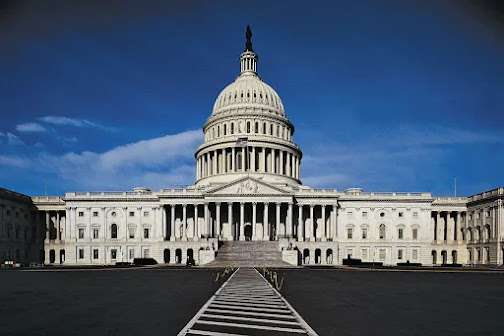Introduction:
The prospect of a deal to raise the U.S. debt ceiling is causing investors to reevaluate their investment strategies, potentially leading to a shift away from technology and growth stocks that have served as havens in recent months. The strong balance sheets and predictable cash flows of megacap stocks, such as Alphabet, Microsoft, and Amazon, have made them attractive to investors during a period of uncertainty. However, should a resolution on the debt ceiling be reached, market dynamics are expected to change, with a broader market rally and a potential reallocation of investments. This article explores the possible effects of a debt ceiling deal on the stock market.
The Dominance of Megacap Tech Stocks:
Megacap technology stocks have played a significant role in driving market gains this year. Their weightings in major indexes have led to substantial increases in market indexes, with a Deutsche Bank report indicating that the entire 8.3% year-to-date gain in the S&P 500 can be attributed to the rally of these tech giants. Without their contribution, the index would be down 0.5% for the year. However, this concentration of gains in a few stocks has left other sectors and stocks behind.
Anticipated Market Shift:
With the potential resolution of the debt ceiling issue, market analysts believe that the current trend could reverse. Michael O'Rourke, Chief Market Strategist at Jones Trading, suggests that the market, as a whole, is pricing in more risk than the megacap names, indicating that a resolution could lead to a broader market rally. O'Rourke expresses optimism towards equal-weighted S&P 500 exchange-traded funds, implying that they could outperform the market-cap weighted index.
Investor Sentiment and Market Expectations:
Investors are closely monitoring Washington for signs of an agreement to raise the U.S. borrowing limit before the looming X-date of June 1. Recent surveys of global fund managers show that 71% believe a deal will be reached before the X-date. Decreasing credit default swap spreads on U.S. government debt reflect improving sentiment and progress in debt ceiling discussions.
Potential Investment Reallocation:
If a deal is reached, investors may shift their focus back to shorter-term U.S. Treasury maturities, which were previously avoided due to concerns surrounding the debt ceiling. Additionally, sectors benefiting from the ongoing strength of the U.S. economy, such as consumer discretionary, could experience increased investment. Sectors like healthcare, often viewed as safe havens during economic downturns, are also expected to attract bullish sentiment.
Tech Stocks and the Market Outlook:
Despite a potential market reallocation, it is unlikely that investors will completely abandon tech stocks, considering their decade-long track record of market leadership. Factors such as excitement around artificial intelligence continue to support the category. However, a broader equity rally would be seen as a positive indicator of the market's overall health.
Ongoing Concerns and Market Dynamics:
While the debt ceiling has been a significant concern, other factors, such as the Federal Reserve's monetary policy tightening and recent banking sector tumult, continue to impact market sentiment. Even with the avoidance of a default, worries regarding economic growth and the impact of monetary policy are likely to persist.
Conclusion:
The potential resolution of the U.S. debt ceiling issue has investors cautiously optimistic about the future direction of the stock market. If a deal is reached, it could trigger a shift in investment strategies, potentially leading to a broader market rally and a reallocation of funds away from megacap tech stocks that have been dominant in recent months. Sectors such as healthcare and consumer discretionary may experience increased investor interest as they are seen as potential beneficiaries of a stronger U.S. economy. However, it is important to note that concerns surrounding the Federal Reserve's monetary policy tightening and recent banking sector challenges are likely to persist, even with averted default. Investors will closely monitor these factors and seek areas that can generate revenue in case economic growth slows. Overall, a resolution to the debt ceiling issue would be seen as a positive development, indicating improved market stability and providing opportunities for investors to diversify their portfolios.



Social Plugin